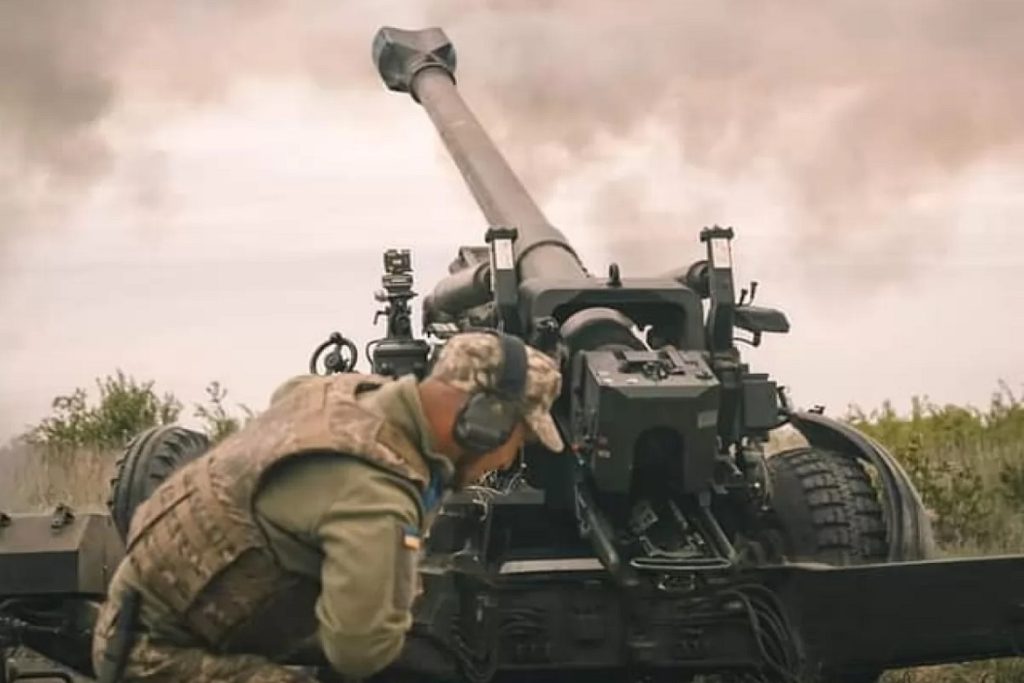World Strategic Insights interview with Lieutenant General (ret) Konstantinos Loukopoulos on the current military situation on the ground in Ukraine and prospects.

Lieutenant General (ret) Konstantinos Loukopoulos is a senior consultant in defense planning and strategic management. He has held various positions in Greece and NATO. Spokesperson for the Chief of Defense, Director of IR at the Ministry of Defense, Instructor and Director of Military Cooperation at the NATO School in Oberammergau, Defense Planning Coordinator at the IMS at NATO Headquarters in Brussels, where he regularly chaired the NATO Military Capabilities Committee Working Group. His articles and analyses are published very often in the Greek and international press.”
– According to a widespread narrative, the Russian military invasion of Ukraine was undermined by poor military planning, significant logistical problems, low combat readiness, and other shortcomings that undermined Russian military effectiveness. Do you agree? What is your opinion on the professional preparedness and “competence” of the Russian military apparatus?
First of all, it was a matter of miscalculation! Putin, his generals and siloviki, overestimated the capabilities of Russian forces and tragically underestimated Ukrainian ones. Moreover, they did not take into account the potential resistance of the Ukrainian people and wrongly estimated that the masses of “pro-Russians” would welcome them as liberators.
Unfeasible political objectives, a wrong strategic plan based on wrong assumptions, i.e., 4 axes of attack without sufficient numbers of troops and means and without a clear center of gravity. The Russians violated one of Clausewitz’s principles of warfare, “concentration,” which means they failed to have overwhelming combat power in a specific area to achieve decisive effect.
At the operational and tactical level, tragic mistakes: Tactical Battle Groups (BTGs) in name only, with very limited infantry, and little or almost no logistics, caused what we saw in the so-called “Battle of Kiev.” Combined undoubtedly with good Ukrainian intelligence and skillful tactics. No command and control units, no initiative on the part of minor leaders.
All the above errors indicate some systemic weaknesses. After the strategic repositioning to reposition ground forces and apply the main effort to the Donbas in eastern Ukraine, Russian generals identified lessons that triggered a change in their operational minds. I cannot say for sure…incompetence, but from the early videos in February one could assume that there was a lack of preparedness, the movements of the Russian army columns were not characterized as tactics for imminent “enemy force” contact! I think the Russians have learned a lot from their mistakes. It remains to be seen what the final result will be.
– Russian troops are making slow but steady progress in eastern Ukraine through increased concentration of artillery and air power, coming to control almost the entire Luhansk region. However, the interpretation of Russian progress is sharply dividing military analysts. In general, just as previous Russian setbacks had led to an overly optimistic consensus about Ukraine’s ability to repel Russian troops, now relatively minor gains are prompting pessimism. What is your opinion of the current situation on the ground and the strategy now adopted by the Russian and Ukrainian militaries?
I have already said that the Russians have learned a lot from their tragic mistakes and the clever defensive operations of the Ukrainian forces. They have concentrated considerable combat power in the east and changed their tactics. They approach built-up areas (towns and villages) only after stormy artillery shelling and reduced resistance. This is why Russian troops have made slow but steady progress. Their gains on the ground are small on a daily basis, but incremental and very substantial. There is already a large coastal zone connecting Crimea, through Mariupol, to the Donbas and Russia. Until now Crimea was connected to Russia only by the Kerts Bridge. They gave strategic depth to Crimea, having controlled the city and region of Kherson, and reached Luhansk within their administrative boundaries. At the same time, the war of attrition increases the cost of war for Kiev and with long-range rockets reminds them that they can strike anywhere in Ukraine they want. In this frame, in the afternoon of 27 June, the Russians hit in a barbaric way a shopping mall with a rocket in Kremenchuck, in eastern Ukraine, causing many civilian casualties. Ukrainian forces are doing their best not to be … defeated and to suspend Russian progress. If the Russians eventually succeed in closing the “horseshoe” we see in the map, that is, seizing the entire Donbas, it will be possible to encircle and destroy the Ukrainian Forces. For the time being, strictly pragmatically and not hope-driven, I do not see that the Ukrainians, under the present circumstances, can win.
– Ukrainians insistently demand heavier weapons: artillery, multiple rocket launchers and air defense systems. However, there is a problem: many of the weapons donated, or to be sent, by the United States, the United Kingdom and European Union countries are very sophisticated, so Ukrainian troops do not know how to use them. Ukrainian forces therefore need to be trained. Recently, talking to Al Jazeera, you said that “Ukraine will need up to nine months to assimilate the military equipment received from Western countries to support its counterattack on Russia.” Also taking into account the current level of forces on the ground, could another nine months of military operations be enough for the Russians to gain strategic military advantages that are difficult to reverse? In general terms, does time play in favor of the Ukrainians or the Russians?
It depends on the prism through which you see it! If the Russians could not advance further west, I could say without hesitation that time favors the Ukrainians. They will have to buy time, because they need months to be able to form a powerful new strategic reserve force with all new weapons so that they can maneuver to push back all Russian troops at least to the February 23 line. This would be called the Kiev victory.
But the longer the war lasts, the higher the risk of escalation. The ugly truth tells us that Russia is on the road to victory. Russian generals have decided to proceed slowly but firmly. Small-scale offensive operations with extensive use of artillery destroying “enemy positions” and “enemy troops.” This means it takes a couple of months to close the “horseshoe,” which will allow Putin to declare before the “siloviki” that he has liberated the Donbas and demilitarized Ukraine.
– French President Emmanuel Macron unleashed fury in Ukraine with a call to “not humiliate Russia.” Putin, he said, has made a “historic mistake and has been isolated, but he should be allowed to save face.” Instead, Volodymyr Zelenskiy seems to believe that with enough time, heavy weapons, economic aid, and political commitment from Ukraine’s Western partners, the Ukrainian military can undo the Russian military’s gains, and he said that any peace talks with Moscow will have to wait until “Russian forces withdraw to the pre-February 24 lines.” What do you think? Is a heavy defeat of the Russians on the military ground conceivable? Above all, will the Russians accept a humiliating military retreat to the pre-February 24 positions without being tempted to use tactical nuclear weapons?
I believe that, based on current facts and assessing the development of the situation on the ground, Russia will eventually win the war, albeit with a Pyrrhic victory! The inconvenient reality says that Russia has the political-strategic and operational-tactical initiative, while Ukraine and the “Western Alliance” react. The war of attrition increases the cost to Kiev, indeed increasingly destroys Ukraine. Putin believes that in the following months and before the onset of winter he must consolidate all the gains on the ground and before the Ukrainians are able to form a new powerful strategic reserve force, as I said emphatically above. The united Western alliance supporting Ukraine in this war is becoming less and less … united and cohesive, despite the rhetoric. They are changing the narrative and the discussion about the need for a cease-fire and negotiations has begun. The economic war (sanctions) against Putin and Russia is extremely difficult to influence the outcome of the war and like a boomerang it comes back in part (collaterally) to our societies. This is something Putin has bet on with the obsession of a gambler. It is highly unlikely that Putin is. “tempted” to use tactical nucs!
Neither Ukraine, nor the West, nor Moscow could hold out that long. The end of the war is not yet visible, but an armistice like the one in Korea in 1953 with a demarcation line and a demilitarized zone is something that some capitals regard as a temporary end state. War ends either when one side succeeds in imposing its will on the other first in the field and then at the negotiating table, or when both sides want to compromise rather than fight, as the cost consistently outweighs any concessions to find so-called “common ground.” Perhaps this time the second case is not far off. Something I stated in my new interview to Al Jazeera.
Lieutenant General (ret) Konstantinos Loukopoulos
Image: Ukrainian gunners fire an FH-70 howitzer. Credit: UKRAINIAN ARMY PHOTO







